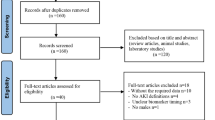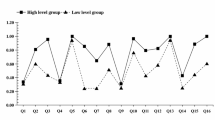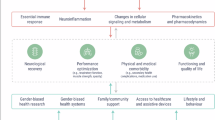Abstract
Bibliometric analyses serve to identify influential articles that have shaped medical practice and fostered new research ideas. Over the past decade, research in andrology has witnessed exponential growth, with an increasing number of academic publications, collaborations, and research innovations. However, there is a lack of literature that has identified the top-cited andrology articles. We conducted a bibliometric analysis to identify the top 1000 citations in andrology journals, with a focus on the top funding agencies, authors, institutions, countries/regions, and journals. To perform this analysis, we identified the top-cited articles in andrology journals as indexed in the Web of Science Core Collection. From 2013 through 2022, we found a total of 9827 articles published in andrology journals. The top publishers included “Andrology,” the “Asian Journal of Andrology,” and “Andrologia.” The top affiliations contributing to research include the Cleveland Clinic Foundation (269 publications), Egyptian Knowledge Bank (EKB) (265), and Shanghai Jiao Tong University (202). Funding was primarily provided by notable agencies such as the National Natural Science Foundation of China (905 grants), United States Department of Health Human Services (321), and National Institutes of Health (NIH USA) (317). The present bibliometric analysis highlights andrology research from 2013 through 2022, offering key insights into leading contributors, influential authors, prominent funding sources, and major trends in the field.
This is a preview of subscription content, access via your institution
Access options
Subscribe to this journal
Receive 12 print issues and online access
$259.00 per year
only $21.58 per issue
Buy this article
- Purchase on SpringerLink
- Instant access to the full article PDF.
USD 39.95
Prices may be subject to local taxes which are calculated during checkout
Similar content being viewed by others
References
Agarwal A, Durairajanayagam D, Tatagari S, Esteves S, Harlev A, Henkel R, et al. Bibliometrics: tracking research impact by selecting the appropriate metrics. Asian J Androl. 2016;18:296–309. https://doi.org/10.4103/1008-682X.171582.
Nason GJ, Tareen F, Mortell A. The top 100 cited articles in urology: An update. Can Urol Assoc J. 2013;7:E16–24. https://doi.org/10.5489/cuaj.12223.
Thomas K, Moore CM, Gerharz EW, O’Brien T, Emberton M. Classic papers in Urology. Eur Urol. 2003;43:591–5. https://doi.org/10.1016/s0302-2838(03)00143-x.
Bullock N, Ellul T, Bennett A, Steggall M, Brown G. The 100 most influential manuscripts in andrology: a bibliometric analysis. Basic Clin Androl. 2018;28:15 https://doi.org/10.1186/s12610-018-0080-4.
Thomas ND, Mahler R, Krombholz K, Williams B, Ganley T, Nepple J, et al. Top 50 Most-Cited Studies about Osteochondritis Dissecans. Arthrosc Sports Med Rehabil. 2023;6:100859 https://doi.org/10.1016/j.asmr.2023.100859.
Aitken RJ, Smith TB, Jobling MS, Baker MA, De Iuliis GN. Oxidative stress and male reproductive health. Asian J Androl. 2014;16:31–38. https://doi.org/10.4103/1008-682X.122203.
Yang G, Zaid UB, Erickson BA, Blaschko SD, Carroll PR, Breyer BN. Urology resident publication output and its relationship to future academic achievement. J Urol. 2011;185:642–6. https://doi.org/10.1016/j.juro.2010.09.097.
Thompson RH, Lohse CM, Husmann DA, Leibovich BC, Gettman MT. Predictors of Scholarly Productivity, Pursuit of Fellowship, and Academic Practice Among Urology Residents Using Medical Student Application Materials. Urology. 2018;120:49–55. https://doi.org/10.1016/j.urology.2018.07.016.
Ekici M, Demir E, Aydın C. A bibliometric perspective with research trends and global productivity on the modernization of andrology from the founder of modern clinical andrology Edward Martin to the present. Eur Rev Med Pharmacol Sci. 2023;27:11947–60. https://doi.org/10.26355/eurrev_202312_34794.
Feldman HA, Goldstein I, Hatzichristou DG, Krane RJ, McKinlay JB. Impotence and its medical and psychosocial correlates: results of the Massachusetts Male Aging Study. J Urol. 1994;151:54–61. https://doi.org/10.1016/s0022-5347(17)34871-1.
Wang J, Cao B, Lin S, Wang Y, Zhang Q, Jiang Y, et al. A Bibliometric Analysis of Urologic Chronic Pelvic Pain Syndrome From 2000 to 2022. J Pain Res. 2023;16:1225–41. https://doi.org/10.2147/JPR.S396009.
Agarwal A, Majzoub A, Esteves SC, Ko E, Ramasamy R, Zini A. Clinical utility of sperm DNA fragmentation testing: practice recommendations based on clinical scenarios. Transl Androl 286 Urol. 2016;5:935–50. https://doi.org/10.21037/tau.2016.10.03.
Kim YS, Unno T, Kim BY, Park MS. Sex Differences in Gut Microbiota. World J Mens Health. 2020;38:48–60. https://doi.org/10.5534/wjmh.190009.
França LR, Hess RA, Dufour JM, Hofmann MC, Griswold MD. The Sertoli cell: one hundred fifty years of beauty and plasticity. Andrology. 2016;4:189–212. https://doi.org/10.1111/andr.12165.
Krausz C, Hoefsloot L, Simoni M, Tüttelmann F, European Academy of Andrology; European Molecular Genetics Quality Network. EAA/EMQN best practice guidelines for molecular diagnosis of Y-chromosomal microdeletions: state-of-the-art 2013. Andrology. 2014;2:5–19. https://doi.org/10.1111/j.2047-2927.2013.00173.x.
Rastrelli G, Di Stasi V, Inglese F, Beccaria M, Garuti M, Costanzo D, et al. Low testosterone levels predict clinical adverse outcomes in SARS-CoV-2 pneumonia patients. Andrology. 2021;9:88–98. https://doi.org/10.1111/andr.12821.
Simon L, Zini A, Dyachenko A, Ciampi A, Carrell DT. A systematic review and meta analysis to determine the effect of sperm DNA damage on in vitro fertilization and intracytoplasmic sperm injection outcome. Asian J Androl. 2017;19:80–90. https://doi.org/10.4103/1008-682X.182822.
Fujita K, Nonomura N. Role of Androgen Receptor in Prostate Cancer: A Review. World J Mens Health. 2019;37:288–95. https://doi.org/10.5534/wjmh.180040.
Schulster M, Bernie AM, Ramasamy R. The role of estradiol in male reproductive function. Asian J Androl. 2016;18:435–40. https://doi.org/10.4103/1008-682X.173932.
Funding
This work was supported by National Institutes of Health Grant R01 DK130991 and Clinician Scientist Development Grant from the American Cancer Society to RR.
Author information
Authors and Affiliations
Contributions
JD – led manuscript, including oversight, review, and writing of multiple sections. RG – contributed to writing and reviewing. AG – contributed to reviewing and statistical analyses. MK – contributed to writing and reviewing. HJ - contributed to writing and reviewing. EK - contributed to writing and reviewing. AS - contributed to writing and reviewing. PM - contributed to writing and reviewing. KC - contributed to reviewing and providing study design feedback. RR - contributed to writing and providing study design feedback.
Corresponding author
Ethics declarations
Competing interests
The authors declare no competing interests.
Additional information
Publisher’s note Springer Nature remains neutral with regard to jurisdictional claims in published maps and institutional affiliations.
Rights and permissions
Springer Nature or its licensor (e.g. a society or other partner) holds exclusive rights to this article under a publishing agreement with the author(s) or other rightsholder(s); author self-archiving of the accepted manuscript version of this article is solely governed by the terms of such publishing agreement and applicable law.
About this article
Cite this article
Dornbush, J., Golan, R., Gurayah, A.A. et al. Top-cited articles in andrology journals from 2013–2022: a bibliometric analysis. Int J Impot Res 37, 356–360 (2025). https://doi.org/10.1038/s41443-024-00908-4
Received:
Revised:
Accepted:
Published:
Version of record:
Issue date:
DOI: https://doi.org/10.1038/s41443-024-00908-4
This article is cited by
-
In continuation of “Top-cited articles in andrology journals from 2013–2022: a bibliometric analysis”
International Journal of Impotence Research (2024)



